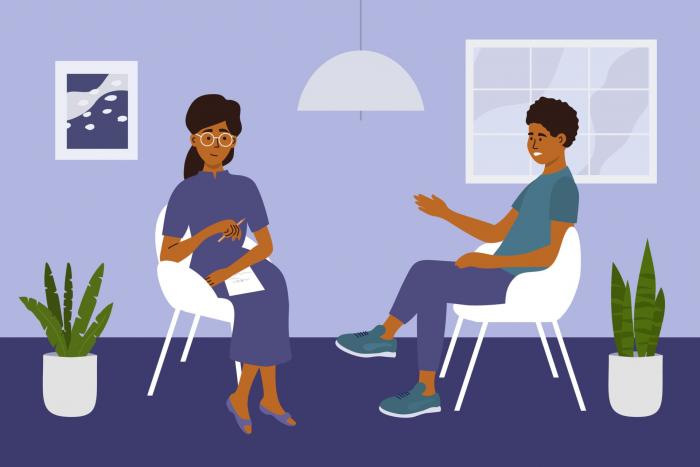
If you or someone you know suffers from bipolar disorder, it can be a frustrating experience.
Bipolar disorder, also known as manic-depressive illness, is a serious mental illness.
Unfortunately, most of the information that exists about the condition is scattered across the web, which makes it hard to find useful information. But there is so much you need to know about bipolar disorder, so you can get the treatment you need as soon as possible.
So let’s dive in.
What Is Bipolar Disorder?
As we mentioned, bipolar disorder is a mental illness that affects how a person’s brain works. The exact cause of this condition is unknown, but the experts believe that genetics are a major factor.
According to mental doctor in Bhopal, “Bipolar disorder is a serious psychiatric illness that causes unusual shifts in mood, energy, activity levels, sleep patterns, and the ability to carry out day-to-day tasks.”
It is often described as a mental illness, and while many people believe that it is caused by stress, there is no definitive answer on why someone develops the condition.
Symptoms
While some people suffer from bipolar disorder for a long time before they are diagnosed, others may experience it for a short time. Some symptoms of the condition include:
- Mood swings
- Lack of interest or pleasure
- Changes in sleep pattern
- Elevated or depressed mood
- A sense of guilt
- Poor judgment
- Abnormal behavior
Other symptoms can include:
- Frequent thoughts about death or suicide
- Irritability or anger
- Feeling like a failure
- Trouble controlling your thoughts and actions
How Do I Recognize Bipolar Disorder?
While many people believe that bipolar disorder is an indicator of poor mental health, it is important to understand that this is not the case. As we mentioned earlier, the exact cause of the condition is unknown, so the only way to know for sure is to get tested.
When you have been diagnosed with bipolar disorder, it can be hard to understand why, but if you are suffering from any of the symptoms listed above, you should see a doctor as soon as possible.
The Causes of Bipolar Disorder
Bipolar disorder has no known cause, but it is often caused by genetics. According to psychiatrists, “It is estimated that as many as 5 percent of people will develop bipolar disorder at some point in their lives.”
There are also other factors that can contribute to the development of bipolar disorder, such as:
- Mental and physical trauma
- Anxiety
- Pregnancy and childbirth
- Mood disorders in parents
- Abuse
- Drug use
- Other medical conditions
- Stress
How Can I Avoid Becoming Diagnosed With Bipolar Disorder?
While there is no way to avoid getting diagnosed with bipolar disorder, you can help prevent it from affecting your life. This includes avoiding certain behaviors that can trigger the condition, such as:
- Using alcohol or drugs
- Drinking too much caffeine
- Excessive exercise
- Eating too many sweets
- Excessive sugar
- Excessive amounts of processed foods
- Stressful relationships
- Having an unhealthy lifestyle
If you notice any of these symptoms, you should speak to your doctor about them. Your doctor may suggest that you limit your consumption of caffeine, sugar, and other substances that can negatively affect your mental health.
Treatments for Bipolar Disorder
As we mentioned earlier, bipolar disorder is not a known cause, so it is hard to know what causes it. But the good news is that there are different types of treatments available for this condition.
For those who suffer from severe bipolar disorder, it is important to speak with a doctor about how they would like to treat you. While most doctors believe that medication is an effective treatment, many people prefer other treatments as well.
The most common types of treatment for bipolar disorder include:
- Medication
- Therapy
- Alternative medicine
- Stress management
Other treatments may include:
- Electroconvulsive therapy (ECT)
- Light therapy
- Behavioral therapies
- Counseling
- Latest Posts
- Best Psychiatrist in Hoshangabad – Dr. Sanjeet Diwan
- Best Psychiatrist in Itarsi –Dr. Sanjeet Diwan
- Best Psychiatrist in Mandideep – Dr. Sanjeet Diwan
- Best Psychiatrist in Obaidullaganj - Dr. Sanjeet Diwan
- Best Psychiatrist in Sehore – Dr. Sanjeet Diwan
- Link between Physical Exercise & Mental Health: An Insight from a Psychiatrist in Bhopal
- The Importance of Self-Care for Mental Health: An Insight from a Psychiatrist in Bhopal
- Addressing the Stigma Surrounding Mental Illness in Bhopal
- Choosing the Right Psychiatrist in Bhopal: A Guide for Patients
- Self Care for Mental Health: Tips and Techniques for Prioritizing Your Well-Being
- Top 6 Tips to Get Rid Of Drug Addiction
- How to Talk to Kids about Anxiety?
- How Can I Best Help My Child Manage His ADHD?
- How to Prevent Suicide in Your Teenage Child?
- How Exercise Affects Our Minds?
- 5 Damaging Myths about Personality Disorders
- What are Body-Focused Repetitive Behaviors?
- Top 8 Effective Ways to Overcome Body Image Issues
- 7 Behaviors That Might Point to Childhood Emotional Neglect
- How to Help Students Who Are Suffering from Mental Health Issues?
